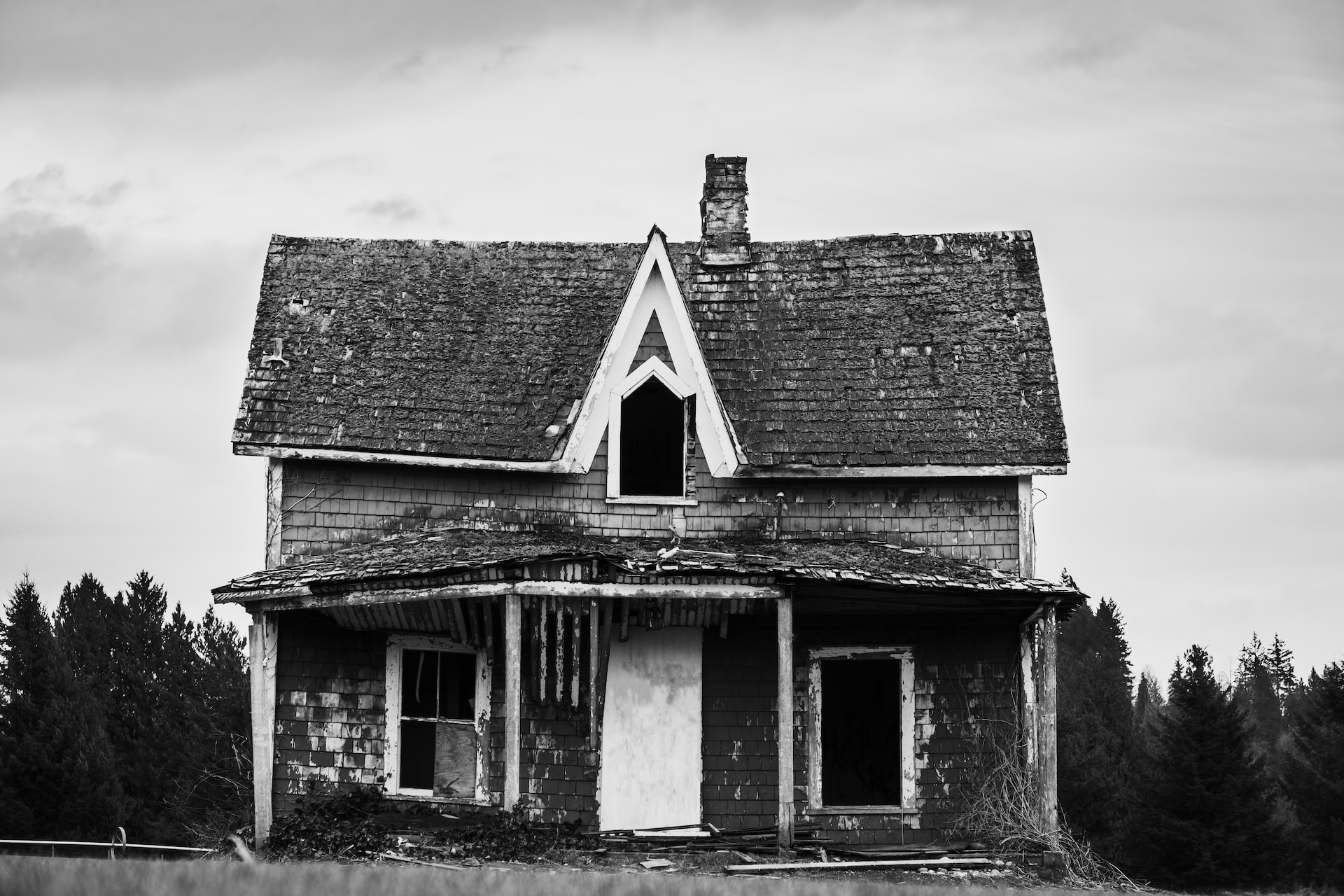Turn on HGTV or scroll around YouTube, and you’re likely to see someone showing you how to flip a house for profit. Books and courses on house-flipping are everywhere, as growing numbers of people are taking up house flipping as a secondary income. In the first quarter of 2022, about one in every 10 homes sold was flipped.
From funding their retirement accounts to paying for vacations, some house flippers are seeing enough success in the business to make house flipping an additional income or their main career.
What Is House Flipping?
When an entrepreneur buys a house, often one that needs repairs or renovations makes those improvements, and then quickly sells the house for a profit, the process is called house flipping.
To make the most profit, house flippers have to buy houses at a lower price, make improvements, and then sell those homes quickly and for thousands of dollars more than they paid.
House-Flipping Advantages
House flipping has plenty of advantages in wealth-building. The pros of house flipping as a second income include these:
Profitability
Even though the hot housing market of 2021 is cooling in 2022, house flipping can still be profitable. The latest figures available show that the average profit from flipping a house is $67,000. Not bad for a side hustle!
Set Your Own Hours
When you’re house flipping, you aren’t punching a time clock. Your schedule is your own to set which makes house flipping something you can schedule around your day job.
Less Volatile Than the Stock Market
If you’re considering property as an investment, the value of housing can be less volatile than the stock market. Changes in housing prices tend to happen slower than changes in stock prices, which can turn south in an afternoon.
Be Your Own Boss
When you’re a house flipper, you are your own boss, supervisor, and manager. The only person you will answer to is yourself.
Work From Home
While you will be spending time at your property working to improve and sell it, much of your work in-house flipping can be done from your home. Not every second job can be done from your kitchen table or sofa.
No Degrees Needed
Real estate knowledge is always a help when investing in property, but you don’t need a degree to flip houses.
House-Flipping Disadvantages
House flipping can also have some major disadvantages that shouldn’t be discounted. The cons of house flipping include these:
High Costs
You’ll need money to start house flipping to cover down payments on properties and the fees involved in buying and selling. Then house flippers will need money to pay for the repairs and upgrades their properties need if they’re going to sell at a profit.
Possibility of Higher Taxes
The fast profits from quick sales in house flipping can increase your tax bill. You may find yourself having to pay a higher capital gains tax rate if you own a property for less than a year.
Hard Work
House flipping may seem like easy money, but often property improvements mean hard work. Many house flippers save money by doing some of the repairs themselves. Curb appeal means you’ll need to keep the yard mowed and install and maintain landscaping. Then there is the work of staging a property and holding an open house.
Possibility Your House Won’t Sell Quickly
Every house flipper hopes they can buy a house at the beginning of the month, make renovations and repairs in a couple of weeks, and then sell their property at the end of the month. That way they could profit without making any mortgage payments on the property.
The reality is that some houses can sit on the market for months, making some house flippers drop their prices in hopes of getting their houses to sell.
Knowledge Is Needed
While you don’t need a college education to be a house flipper, successful house flippers are students of the real estate business. They’ll wait patiently for the right property to go on the market at the right price, and they know what to look for in making buys that will generate a profit quickly.
How to Start Flipping Houses
If you think house flipping is the perfect second job, take these steps to start flipping houses. If you check these actions off your list, you’ll be ready to buy your first property.
Write a Business Plan
Writing a plan for what your real estate business will do is essential to starting to flip houses. Include an executive summary of your business vision, financial projections, who will be involved, and demand for your business’ services.
Build Your Team
House flipping is a team sport. You will need professional expertise from others, including a lawyer, an accountant, contractors and subcontractors, sources for materials, bankers, realtors, home stagers, landscapers, and more.
Form Your Business
You’ll need to form a corporation or an LLC to protect yourself individually should anything go wrong in your house-flipping plan. You will also need an employer identification number, or EIN, along with insurance, permits, business licenses, and bank accounts for your business. Consider whether you will have partners or investors in your house-flipping venture.
Find Financing
Having the money to buy and renovate properties is the lifeblood of house flipping. You can try to get a traditional business loan from a bank, but consider other sources such as investors, loans from family members or friends, or a 401(k) loan. Once you have made your first successful flip, you can use the profits to finance your next flip.
House-Flipping Mistakes
Don’t let your house flip become a flop. Beginning house flippers’ mistakes can eat up their profits. Here are a few house-flipping errors you don’t want to make:
Not Having a Budget
The framework of a realistic budget for your house flip will keep you from overspending on property or repairs during the excitement of your first house flip.
Not Getting a Home Inspection
Even if you have experience in home repairs, having a home inspector look over the property you’re considering for your house flip will give you insight into problems such as code violations, structural issues, electrical problems, and more.
Underestimating Costs
Labor and materials can and will go up in price. Underestimating the costs of repairs and renovations is one of the most frequent mistakes newbie house flippers make.
Not Taking the Neighborhood Into Consideration
Not looking at the larger picture when house flipping can cause problems. Consider the neighborhood when making renovations. You want your house to fit in with the rest of the houses in the neighborhood. If you are flipping a house in an upscale neighborhood, you don’t want to install Formica counters, just as granite would be out of place in a starter home.
Also, think about the quality of life in the rest of the neighborhood. How are the schools? Is crime a problem? Are the roads in disrepair? Answers to these questions may help you in deciding whether a house is worth flipping.
Having an Unrealistic Time Frame
The most successful house flippers can buy, renovate, and sell their properties in about three months. Don’t underestimate the time it will take to repair and sell your house and prepare for that financially.
Doing It All Yourself
Many house flippers are skilled in making home repairs, but that doesn’t mean they should do all the repairs themselves to save money. Trying to do too many repairs as DIY projects can extend the house-flipping timeline. Trying to do all the repairs yourself will cost you money.
Doing Nothing Yourself
House-flippers should put in a little sweat during renovations. Even those with no repair experience can handle demolition such as pulling out old carpets and removing cabinets that are dated and worn. Doing the demolition work yourself will lower renovation costs.
Hiring a Bad Contractor
Your house-flipping contractor can make or break your business plan. Before hiring a contractor, ask previous clients about the quality of work and whether it was done on schedule and within budget.
Make sure to have your contractor sign an agreement that spells out expectations and a schedule. The contractor you hire should be licensed and insured and has workman’s compensation coverage.
Skipping Permits
Hiring professionals to do the renovations on your investment should pull permits for you. If you do the work yourself, don’t skip permitting, or you will hit delays later in the house-flipping process.
The Bottom Line
House flipping can be a profitable secondary income that could one day retire you from your day job. Many house flippers enjoy the thrill of hunting for the perfect home to update, repair, and sell, making this form of real estate investing a secondary job they love.
Don’t go into the house-flipping business thinking it’s as quick and easy as it looks on television. Being a successful house flipper takes coordination, real estate knowledge, and hard work, but it’s a rewarding second job.



